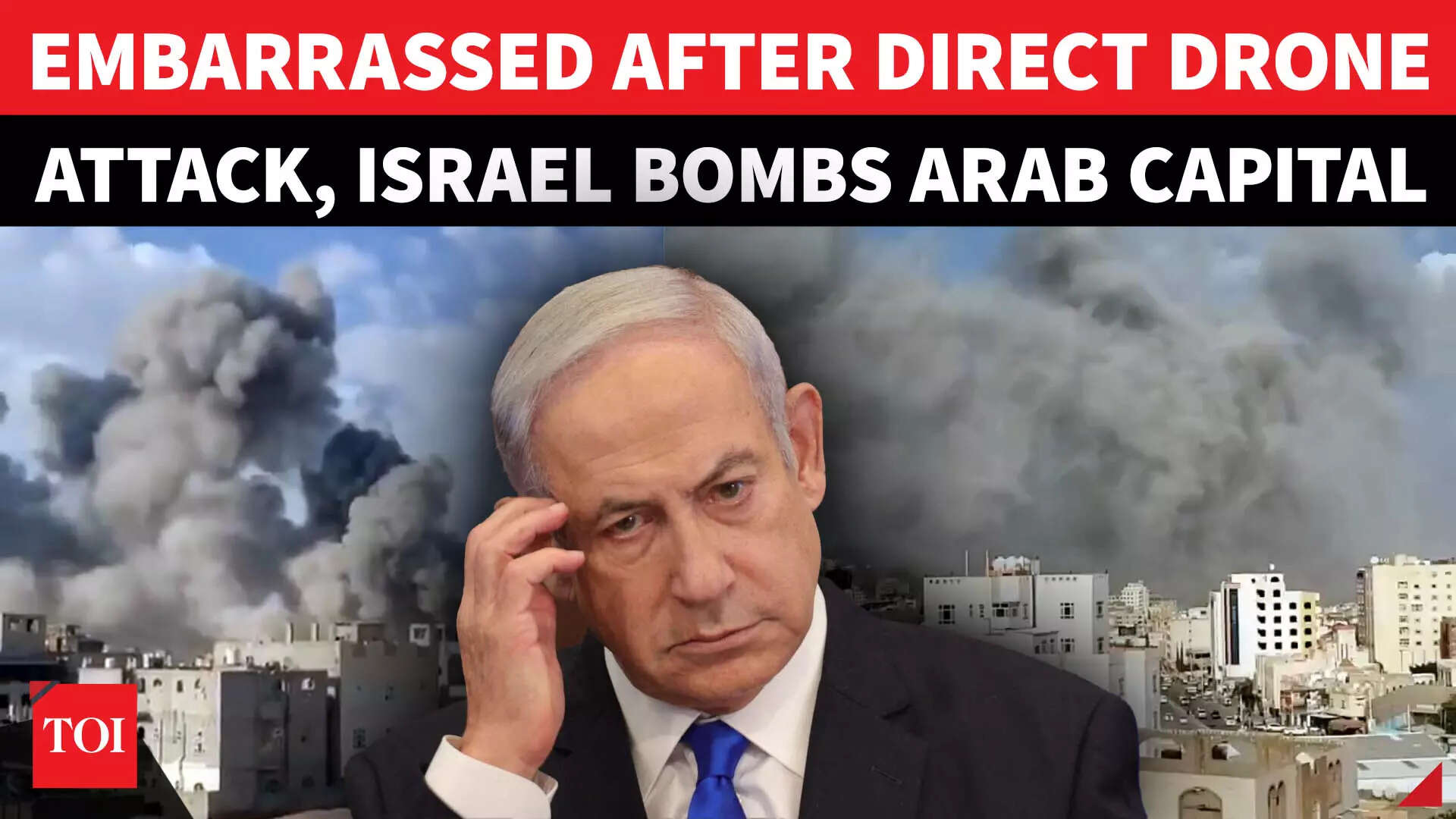Top Stories
Israel Launches Major Airstrikes on Houthi Targets in Yemen

Israel has conducted its most extensive airstrike on Yemen to date, targeting the Iran-backed Houthi fighters. This military operation was prompted by a recent drone strike that injured over 20 individuals in the southern city of Eilat. The Israel Defense Forces (IDF) reported that 20 fighter jets participated in the operation, which involved dropping more than 65 munitions on several strategic locations, including five military headquarters used by the Houthis.
Explosions were reported throughout Sanaa as the airstrikes unfolded, marking a significant escalation in the ongoing conflict. Israeli officials characterized the airstrikes as a “powerful blow” to Houthi military capabilities. The operation followed the failure of Israel’s Iron Dome defense system to intercept the Houthi drone that targeted Eilat, raising concerns about the effectiveness of the country’s aerial defense mechanisms.
Context of the Conflict
The Houthi forces, who have been engaged in conflict with the Yemeni government for several years, claim that their actions are in solidarity with Palestinians amid the current violence in Gaza. This context adds a layer of complexity to the situation, as regional tensions continue to escalate. The Houthis have positioned themselves as supporters of Palestinian causes, linking their military actions to broader geopolitical issues in the Middle East.
In response to the Israeli airstrikes, Houthi officials have condemned the attacks and vowed to retaliate. The group has a history of launching drone strikes into Saudi Arabia and other regional targets, but this incident marks a notable shift in their operations, now directly targeting Israeli territory.
The implications of this conflict extend beyond the immediate military actions. The airstrikes could further destabilize an already volatile region, with potential repercussions for neighboring countries and global diplomatic relations. Analysts are concerned that continued hostilities could spark a wider conflict, drawing in more regional powers and complicating the ongoing humanitarian crisis in Yemen.
As tensions escalate, both sides remain entrenched in their positions. The Israeli government has reiterated its commitment to countering threats from the Houthis and other militant groups, while the Houthis maintain their stance of defiance, insisting on their right to respond to perceived aggressions.
In the wake of these developments, the international community is closely monitoring the situation, with calls for de-escalation and renewed diplomatic efforts to address the underlying issues driving the conflict. The ongoing violence in Yemen and its connections to the Israeli-Palestinian conflict underscore the intricate web of alliances and enmities that characterize the region.
The recent airstrikes serve as a stark reminder of the fragility of peace in the Middle East and the potential for rapid escalation in conflicts that have far-reaching implications for global security.
-

 World5 months ago
World5 months agoSBI Announces QIP Floor Price at ₹811.05 Per Share
-

 Lifestyle5 months ago
Lifestyle5 months agoCept Unveils ₹3.1 Crore Urban Mobility Plan for Sustainable Growth
-

 Science4 months ago
Science4 months agoNew Blood Group Discovered in South Indian Woman at Rotary Centre
-

 World5 months ago
World5 months agoTorrential Rains Cause Flash Flooding in New York and New Jersey
-

 Top Stories5 months ago
Top Stories5 months agoKonkani Cultural Organisation to Host Pearl Jubilee in Abu Dhabi
-

 Sports4 months ago
Sports4 months agoBroad Advocates for Bowling Change Ahead of Final Test Against India
-

 Science5 months ago
Science5 months agoNothing Headphone 1 Review: A Bold Contender in Audio Design
-

 Top Stories5 months ago
Top Stories5 months agoAir India Crash Investigation Highlights Boeing Fuel Switch Concerns
-

 Business5 months ago
Business5 months agoIndian Stock Market Rebounds: Sensex and Nifty Rise After Four-Day Decline
-

 Sports4 months ago
Sports4 months agoCristian Totti Retires at 19: Pressure of Fame Takes Toll
-

 Politics5 months ago
Politics5 months agoAbandoned Doberman Finds New Home After Journey to Prague
-

 Top Stories5 months ago
Top Stories5 months agoPatna Bank Manager Abhishek Varun Found Dead in Well









